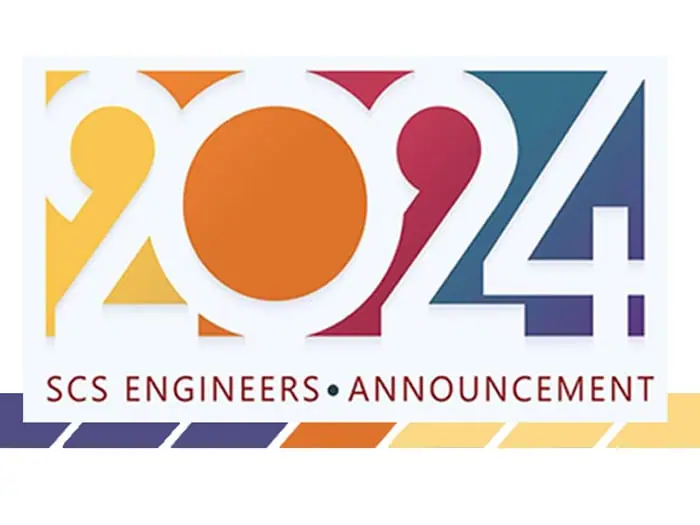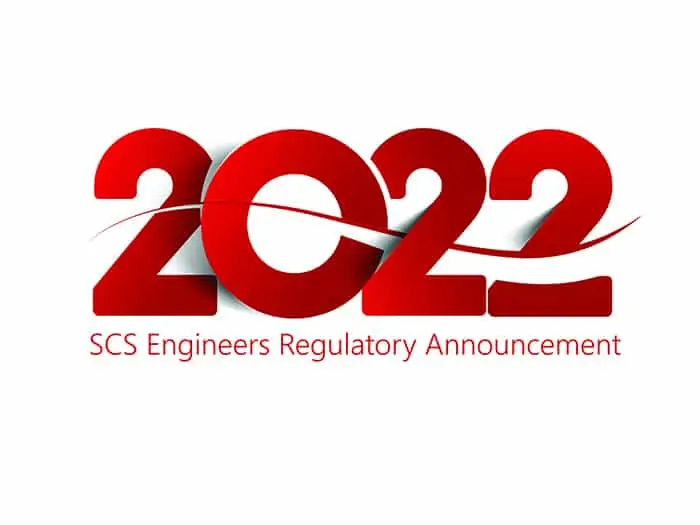


On September 6, the U.S. Environmental Protection Agency (EPA) announced the availability of $232 million in grant funding through EPA’s Brownfields Assessment, Revolving Loan Fund, and Cleanup (ARC) program. This is the fourth wave of funding supported by the Administration’s Investing in America agenda to assess and clean up polluted brownfield sites across the country. The new grants will advance environmental justice and help transform once-polluted, vacant, and abandoned properties into community assets while spurring economic revitalization in underserved communities.
The Notices of Funding Opportunities and application information are posted on www.grants.gov/. Applications are due by November 14, 2024, via grants.gov.
Copies of the FY25 Brownfields Grants Guidelines and other application resources are available on the Multipurpose, Assessment, Revolving Loan Fund, and Cleanup (MARC) Grant Application Resources webpage.
The Office of Brownfields and Land Revitalization will host outreach webinars on September 19, 2024, and September 24, 2024, to explain the Narrative/Ranking criteria for interested applicants and to address commonly asked questions. Prior registration is not required. Link to join the Assessment Grants webinar on September 19 at 12:00 pm ET
Link to join the Revolving Loan Fund and Cleanup Grants webinar on September 24 at 12:00 pm ET
Read more on EPA’s Brownfields Program or contact your local Brownfields expert at SCS Engineers.
The U.S. Environmental Protection Agency (EPA) announces the availability of up to $4.6 billion of competitive grants. The grants are broken into two funding opportunities. The Climate Pollution Reduction Grants (CPRG) competition is designed to incentivize eligible applicants to apply for funding together as a coalition to implement GHG reduction measures regionally, across multiple municipalities, state boundaries, or even state and tribal boundaries. It includes funding for enhancing carbon removal, too.
Deadlines to Apply for Grants to Implement GHG Reduction
Under Funding Opportunity Number EPA-R-OAR-CPRGT-23-07, EPA announces approximately $4.3 billion for a general competition open to states, municipalities, air pollution control agencies, tribes, and territories for CPRG implementation grants. Tribes and territories interested in the general competition should seek the CPRG implementation grant “general competition” NOFO for more information. Applications for this implementation grants competition for tribes and territories are due on May 1, 2024.
Another $300 million for the CPRG implementation grants competition is exclusively for tribes and territories. Lead organizations for tribes and territories must submit their Priority Climate Action Plans to EPA by the deadline of April 1, 2024, in order for lead organizations and other eligible applicants under this announcement to submit grant applications to fund measures contained in those plans. EPA anticipates awarding approximately 25 to 100 grants ranging between $1 million and $25 million under this tribes and territories competition. Further detail on award tiers can be found in Table 1 of Section II.B.
Climate Change Disruptions
As the US faces the increasingly harmful impacts of climate change, communities are experiencing more deadly wildfires and storm surges, more extreme drought and water scarcity, and dangerous levels of flooding, among other impacts. The Fourth National Climate Assessment found that intense extreme weather, climate-related events, and changes in average climate conditions are expected to continue damaging infrastructure, ecosystems, and social systems that provide essential benefits to communities. If left unchecked, future climate change is expected to disrupt many areas of life further and exacerbate existing challenges to prosperity posed by aging and deteriorating infrastructure, stressed ecosystems, and long-standing inequalities.
Grants to Support Your Communities
Our country’s daunting challenge comes with an opportunity to invest in a cleaner economy that will spur innovation and economic growth while building more equitable, resilient communities. Accordingly, the Climate Pollution Reduction Grants program is designed to achieve the following goals:
1. Implement ambitious measures that will achieve significant cumulative GHG reductions by 2030 and beyond;
2. Pursue measures that will achieve substantial community benefits (such as reduction of criteria air pollutants (CAPs) and hazardous air pollutants (HAPs));
3. Complement other funding sources to maximize these GHG reductions and community benefits; and,
4. Pursue innovative policies and programs that are replicable and can be “scaled up” across multiple jurisdictions.
What Qualifies as a GHG Reduction Measure?
Treatments and solutions that reduce GHG emissions or enhance carbon removal can qualify. Measures that enhance carbon removal increase carbon dioxide removal from the atmosphere through, for example, the uptake of carbon and storage. Other measures may include EPA-approved technologies. Documentation must be provided to support the estimated GHG emission reductions for each proposed measure. Depending upon the proposed solution, you’ll need a well-conceived plan and data from a reliable environmental engineer or an environmental or sustainability consultant.
Who’s Eligible?
Eligible applicants for the CPRG implementation grants competitions are lead organizations for CPRG planning grants and other executive branch-level agencies, offices, and departments in states, D.C., Puerto Rico, municipalities, tribes, tribal consortia, territories, and groups of such entities applying for funding to implement measures contained in one or more applicable Priority Climate Action Plan developed with funding from a CPRG planning grant.
Additional Resources
Webinars:
EPA will host overview webinars for each implementation grant competition for eligible applicants and other interested parties over the coming weeks. All sessions will be one hour long. EPA will post recordings of each webinar to the CPRG website. You can click the links below to register for one or more scheduled sessions.
| Date | Time (ET) | Event Topic | Register |
| Sept. 21 | 2:30 pm | General competition webinar | Register here |
| Sept. 27 | 2:00 pm | Tribe and territories only competition webinar | Register here |
| Oct. 3 | 3:00 pm | General competition webinar (repeat) | Register here |
| Oct. 5 | 1:00 pm | Tribe and territories only competition webinar (repeat) | Register here |
On February 13, 2023, the EPA announced the availability of $2 billion of grant funding to address emerging contaminants, like Per- and Polyfluoroalkyl Substances (PFAS) in drinking water across the country. This investment, which is allocated to states and territories, will be made available to communities as grants through EPA’s Emerging Contaminants in Small or Disadvantaged Communities (EC-SDC) Grant Program and will promote access to safe and clean water in small, rural, and disadvantaged communities while supporting local economies.
This initial allotment of $2 billion to states and territories can be used to prioritize infrastructure and source water treatment for pollutants, like PFAS and other emerging contaminants, and to conduct water quality testing. EPA awards funding to states based on an allocation formula that includes factors such as population, number of water systems, and data related to emerging contaminants. EPA’s implementation documents contain information on how EPA will award and administer the EC-SDC grants. Participating states and territories should submit application packages for the grant funding at https://www.grants.gov.
Additional Resources:

EPA will be accepting applications for both programs through January 16, 2023.
The SWIFR Grant Program provides $275 million over five years for states, municipalities, and tribes to:
The Recycling Education and Outreach Grant Program provides $75 million over five years to states, municipalities, tribes, non-profit organizations, and public-private partnerships to:
Nena Shaw, EPA Acting Director for the Resource Conservation and Sustainability Division, will speak about the grant programs and related EPA waste-related initiatives during her keynote presentation at WASTECON 2022 on Thursday, December 8, in San Diego, California.
Note that $100 million of this funding is available to help build and transform solid waste infrastructure, manage materials to achieve a circular economy, reduce greenhouse gas emissions, and create cleaner, resilient, and healthier communities through composting and organics management programs.
Please contact your SCS program manager or one of our national experts to learn more or get support with your application. We’re always here to help.
A Nebraska city earned an $800,000 grant from the Environmental Protection Agency. The City of Lincoln plans to use the grant to assess and clean up brownfield sites, including up to 10 acres of land city officials hope to use for self-sustaining urban agriculture projects.
Officials plan to create a self-sustaining urban agricultural area in two adjacent 5-acre parcels for lease by local farmers. Lincoln can begin moving local food production into commercial use by local businesses.
In a recent Journal Star article, Tim Rinne, chairman of the Lincoln-Lancaster County Food Policy Council, said, “Rather than continuing to rely exclusively on drought-stricken and wildfire-plagued California to produce the bulk of our produce, or waiting for the next breakdown of our national food distribution network like we saw with the COVID-19 crisis, Lincoln’s city government leadership is taking the visionary and cautionary step of building a resilient local food system.”
The planned agricultural use also helps protect surrounding developments. The five-year grant will help the city assess four other sites in the area and could support cleanup plans at two more sites.
Brownfields Resources to Organize, Educate, and Implement Plans in Your Community